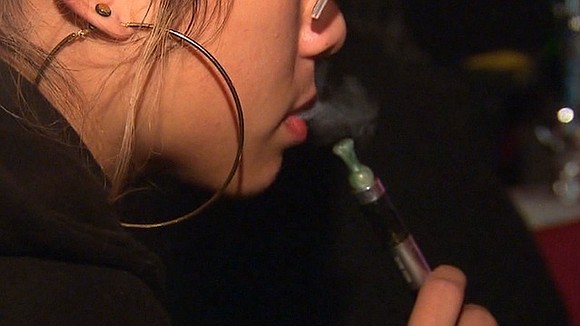San Francisco Moves to Ban Sales of Vaping Flavors, Menthol Cigarettes
CNN/Stylemagazine.com Newswire | 6/22/2017, 11:26 a.m.

By Susan Scutti
CNN
(CNN) -- San Francisco city supervisors approved this week an ordinance to ban the sales of flavored vaping liquid. The measure would also prohibit sales of menthol cigarettes and other flavored tobacco products.
The city board will vote on the ban next week. If passed, the legislation will become effective in April 2018 throughout the city -- the first in the nation to approve such a sweeping ban on flavored tobacco sales.
Non-flavored tobacco products will still be allowed to be sold in the city under the new law. Prohibited products would include all flavored cigarettes, flavored cigars, flavored smokeless tobacco, flavored shisha, and flavored nicotine solutions that are used in e-cigarettes.
Effective in June last year, California changed the legal age to purchase tobacco from 18 to 21. The same measure, signed by California Gov. Jerry Brown, said vaping products would be regulated as tobacco products.
The new ordinance states that "flavored tobacco products promote youth initiation of tobacco use," while "menthol, in particular, cools and numbs the throat to reduce throat irritation and make the smoke feel smoother."
Ray Story, CEO of Tobacco Vapor Electronic Cigarette Association, an industry association, thinks the new ordinance is "extremely irresponsible."
Story agrees with getting rid of vaping product flavors and packaging with cartoon characters meant to target children but, he believes that many smokers use e-cigarettes to transition away from harmful cigarettes. He considers vaping a form of harm reduction, a treatment philosophy that proposes reducing use and negative impacts of drugs for those people who are unable or simply unwilling to stop.
Online sales not banned
Regina Dick-Endrizzi, executive director of San Francisco's Office of Small Business, said the office supports the health-related intent of the measure but questioned the impact on small businesses and future tax revenues.
"The law does not prohibit individuals from online purchases or utilizing delivery apps of businesses outside San Francisco; it does prohibit the sale and delivery of those products by San Francisco businesses," observes Dick-Endrizzi in a letter to the board members. She also notes that buying flavored tobacco products online often occurs without having to present an ID.
While other cities are passing laws to reduce access to flavored tobacco, none have a full ban on all flavored tobacco products. In New York City, for example, proposed laws ban flavored tobacco products, but allow menthol-flavored cigarettes and other varieties that are part of the San Francisco ban. In Chicago, bans only extend to retailers located within a 500 foot radius of a school, with exceptions made for some stores.
"At the end of the day, it's an adult product," said Story, who added that the new ordinance "makes no sense" in a state which "in the next days will allow any type of marijuana" to be sold, including edible products such as brownies.
"Personally I am absolutely against flavors like bubble gum or pink elephant or strawberry delicious because I think the name itself sends the wrong message," said Story. "But the adult looking for a less harmful alternative is not looking for these products."
Vaping and teens
Among high school and middle school students, the use of tobacco products has remained relatively unchanged during the years 2011 through 2016, according to a report released last week by the US Centers for Disease Control and Prevention. However, from 2015 to 2016, there were decreases in use of any tobacco product, e-cigarettes and hookahs among high school students. For middle-schoolers, rates of e-cigarette use dropped slightly as well.
In 2016, 20.2% of high school students and 7.2% of middle school students reported current tobacco product use, based on data from the National Youth Tobacco Surveys.
Previous reports have been showing year-on-year increases in vaping, which has only been tracked by the CDC since 2011.
E-cigarettes are now the most commonly used form of tobacco among young people in the United States, surpassing conventional tobacco products, including cigarettes, cigars, chewing tobacco and hookahs, wrote then-US Surgeon General Dr. Vivek H. Murthy in a report released in December 2016. Use of e-cigarettes among high school students increased by 900% from 2011 to 2015, according to his report.
In his report, Murthy called for federal, state and local action immediately, such as including e-cigarettes in smoking bans as well as significant increases in taxes and the price of e-cigarette products.



